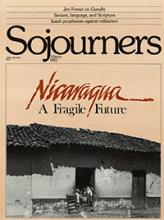When a revolution takes place, people look for the ideology that guides the building of the new society. Sometimes revolutions can be embarked upon rather hastily, and people may think the essence of a revolution is to overthrow a government. That is not the revolution. That is something that has to.happen prior to the revolution.
If, due to political myopia, the people decide that the revolution is the overthrowing and they do not carefully consider beforehand what they will do after the overthrow, they may run in haste to the international supermarket of ideological formulas to see which best fits their situation. Well, thank God, in Nicaragua, in the varying trails of our mountains and valleys and in our cities there has been in gestation for more than half a century a true Nicaraguan ideology, which we call Sandinismo.
Sandino was not a philosopher; he did not sit down to explain in a systematic way his political thought. He was a person endowed with a great amount of popular wisdom, and although he was without formal education, he synthesized the common denominator or the end result of Nicaraguan political thought, the result of our experience.
Sandinista thought rests on four fundamental pillars. The first is nationalism. We are not talking about chauvinism here, but about a nationalism that is manifested in the will of our people to regain sovereignty, to determine our own destiny, even to have the right to make our own mistakes and learn from them--and to determine what system of government we will opt for to best meet the needs of our people.
Sandinismo is not nationalistic in any sense that leads us to believe that we have discovered a formula that is good for any other country. We believe that, just as we are looking for our own way, every other country has to look for its own way. This is why for us it seems strange that we might be intent on exporting our revolution.
Read the Full Article

